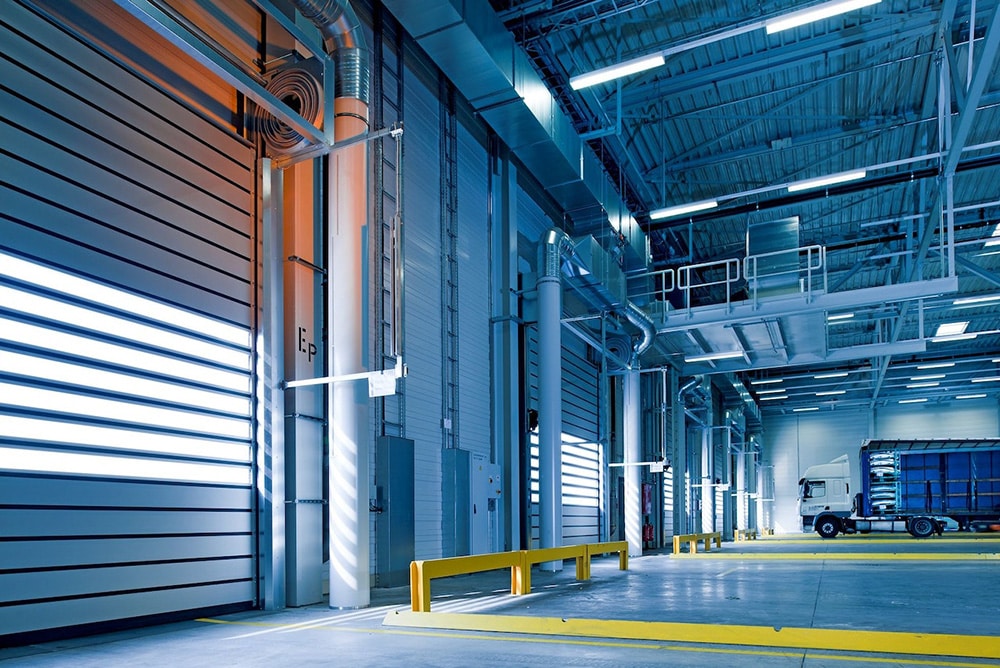How Can the Truck Driver Shortage Impact Road Safety?

In 2021, it was reported by American Trucking Associations (ATA) that the trucking industry was roughly 80,000 drivers short of where it needed to be. That number was projected to pass 160,000 by 2030. The ATA estimated that one million new drivers will need to be recruited and hired over the next ten years to keep up with industry growth and replace drivers who will retire, resign, or be removed from duties for violating regulations.
If you’ve been to a grocery or retail store in recent months, chances are you have seen the effects of the truck driver shortage. As consumers, we experience the obvious effects of an employee shortage in an industry that is integral to over 70% of the nation’s economy – both price increases and lack of inventory.
But as drivers who share the road with commercial trucks, we may see other effects as well, such as the impact to overall road safety.
Why Is There a Truck Driver Shortage?
In the study published in 2021, the American Trucking Associations pointed to several factors that have caused the number of drivers in the trucking industry to plummet.
It was noted that the challenge to find qualified drivers is most critical in the long-haul, non-local, for-hire sector. These are the drivers you most commonly see traveling on our interstate highways. Unlike local delivery drivers and intrastate truckers, these drivers spend extended hours on the road and may only return home weekly or monthly.
Factors that may contribute to the difficulty in finding this type of driver now and in the future include:
- Pandemic-related effects, including reduced class size in trucking schools;
- Personal issues that require drivers to be at home instead of on the road;
- High average age of current drivers, contributing to high retirement rates;
- Minimum age of 21 required for drivers who cross state lines, narrowing the hiring pool;
- Unequal gender balance, with women representing only 7% of drivers;
- Inability of potential or current drivers to pass drug tests (including marijuana);
- Poor infrastructure design, traffic congestion, and difficulty finding parking for large trucks; or
- Criminal histories or other factors that prevent drivers from being hired
How Is Road Safety Impacted by the Truck Driver Shortage?
The commercial truck driver shortage has impacted road safety in a number of ways. We’ll discuss four primary ways below, including: declining/lackadaisical hiring standards; negligent or inadequate driver training; a culture that encourages too-long driving shifts; and a tendency to overload or misload cargo.
Poor Hiring Practices
It’s understandable that a company desperately in need of drivers may look outside the normal pool of applicants in an effort to recruit bodies to fill driver seats. However, relaxing hiring standards to simply meet the numbers is not the answer and is a recipe for disaster. When companies engage in poor hiring and screening practices, it leaves the door wide open for having unqualified drivers filling positions of employment. This often means that the company can now potentially employ drivers who:
- Don’t hold the proper driver’s license;
- Are inexperienced on the road;
- Have a history of regulation/regulatory violations;
- Have records of failed drug or alcohol tests; and/or
- Have multiple tickets for speeding or other traffic violations
Inadequate Driver Training
When companies are too eager to get drivers on the road after hiring, they may resort to rushing the training process. Additionally, motor carriers are often more willing to look the other way if an applicant lies about their driving experience or past training.
Driving a tractor-trailer requires extensive training and fundamental knowledge about vehicle mechanics and federal regulations for use. Without proper training, drivers may not have knowledge or experience regarding:
- Federal laws governing maximum driving hours, parking protocol, pre-trip inspections, and other important matters;
- How to safely handle varying weather conditions;
- What to do in case of an emergency (ie. placing triangles or other warning devices on the road);
- The truck’s braking distances and stopping times;
- How to safely navigate inclines and turns; and/or
- When and where to stop for weighing and inspections
Hour of Service (HOS) Violations
An alarming development since the beginning of the truck driver shortage, is the unsafe practice of companies to suggest that drivers work longer hours than they are safely capable of. This often means that drivers are asked (overtly or indirectly) by their employers to break federal hours of service (HOS) laws. These laws are in place to limit the amount of time a driver can spend behind the wheel without rest.
Fatigued driving is unsafe driving. When a driver is pushed beyond their limit and forced to stay on the road when they are exhausted at risk of losing their job, the risk of an accident skyrockets. Some drivers even get into the habit of deliberately falsifying driving records to hide the amount of time they have actually been behind the wheel. If unchecked, this dangerous system of overworking drivers will contribute to a rise in substance abuse disorders among truckers, particularly the use of stimulants like amphetamines.
Overloading Trailers
When there are fewer drivers available to make deliveries, companies often try to maximize the amount of cargo that can be transported on each trip. This may lead to overloading. Overloading a truck is dangerous because it can cause a tire blowout, mechanical failure (especially brake or transmission failure), or a rollover accident when the truck loses balance. All of these issues can cause devastating crashes when they happen on the road.
Because companies are trying to make the most of each trip, workers may also relax their standards when it comes to mandatory inspections and maintenance. This may lead to perfunctory or non-existent pre-trip inspections and fleet maintenance. When all these factors combine, the chances that a truck will have a sudden breakdown and cause an accident on the highway are high.
Help for Truck Accident Victims in Illinois
Truck accidents are common in Illinois and the nation as a whole. The number of accidents caused by semi-trucks is already high, and the driver shortage will likely cause the truck accident statistics to rise. If you were injured in a tractor-trailer accident caused by a negligent driver, a truck accident attorney from Schweickert Ganassin Krzak Rundio, LLP can review your case at no cost to you.








